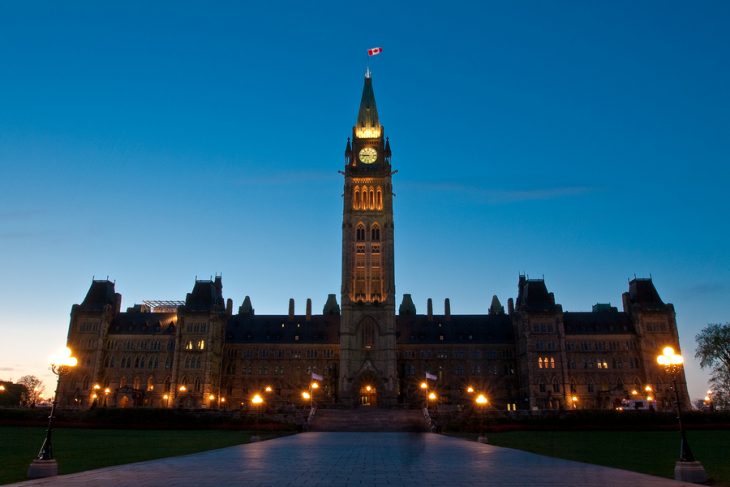
WHILE WE’VE MENTIONED it a couple of times during the 12 days (only 12!?) since Heritage Minister Mélanie Joly announced her Creative Canada vision, it seems the news that the federal government has decided to see if it can levy a tax on Internet service providers in order to help fund the production of Canadian content has been overlooked.
The initial proof of this came when the Governor-in-Council directed the CRTC to get cracking on a new report that will reveal: “a) the distribution model or models of programming that are likely to exist in the future; b) how and through whom Canadians will access that programming; and c) the extent to which these models will ensure a vibrant domestic market that is capable of supporting the continued creation, production and distribution of Canadian programming, in both official languages, including original entertainment and information programming.”
That September 22 Order-in-Council effectively kicked off the much ballyhooed overhauls of the Broadcasting Act and Telecommunications Act and it tells the Commission to figure out all programming distribution models now and in the future, how we’ll all watch, and most importantly, how those models will “support” the making and dissemination of Canadian content.
Then the minister herself confirmed yes indeed, the reviews of the Acts, especially the Telecom Act, are going to focus on having ISPs kick in some of their revenue in order to fund the production of Canadian content. After all, she said, they benefit from Canadians’ streaming all kinds of content over their networks.
As we noted last week, she told CTV’s Question Period: “We know that we have a very strong telecommunications sector, that we have internet service providers that actually benefit from the use of all of these online platforms, be they Canadian or foreign – and that’s why we’re opening the Telecommunications Act where we really hope that we can talk to the telecommunications industry to see how they can support Canadian content. What can be their role in making sure that there are strong Canadian voices – and ultimately how can we preserve that market of $3 billion that supports the distribution of Canadian content and how can they play a role also in making sure there is strong journalism in the country.”
(Ed note: Still don’t know to what the $3B refers.)
In order to even consider mandating ISPs to divert some revenue (a.k.a. subscription fees collected from Canadians) towards our film, TV and journalism trades, the government must change the Acts. Our Supreme Court, back in 2012, made it clear under existing law that ISPs, at their heart, only transmit data, have no control over the programming streamed and therefore are not broadcasters, not subject to cultural provisions and therefore can not be forced to contribute to funding Cancon the way TV distributors must.
“That’s why we’re opening the Telecommunications Act where we really hope that we can talk to the telecommunications industry to see how they can support Canadian content.” – Mélanie Joly
So, one wonders, if the Minister intends to go after ISPs for support, does the federal government intend to then redefine the definition of broadcasting so it can include ISPs? And, if that’s the case, what then of wireless providers, which are also ISPs? Is the Trudeau government thinking that every Canadian with a smartphone should be kicking in some Cancon dough through their subscriptions? Many, ahem, “middle class Canadians” have a home broadband subscription and a mobile one. Will they be counted twice towards that contribution?
For that matter, if ISPs are then broadcasters, what happens to the CRTC’s New Media Exemption Order? Does it still apply to entities like CraveTV and Netflix, which feature works transmitted by those ISPs, which may be classified as akin to cable companies?
So many questions we can’t yet answer.
Finally, and of course, those in the business are well aware all licensed TV distributors (cable, satellite, IPTV) must send 5% of revenues gathered from video towards Canadian content – either directly to community programming, news, or to the Canada Media Fund or other production funds. However, it doesn’t appear as a line item on my bill.
So, many Canadians (most of them, likely) aren’t aware the cost of their TV subscription includes that 5% contribution to Cancon. One wonders if whatever the government decides, will an ISP Cancon levy then be as invisible, allowing the federal government then to keep its “no Netflix tax” promise as well as the one not to raise taxes on middle class Canadians?
We only ask because any new levy is an input which would go into what Canadians pay for services, so prices would rise, whether it’s called a Netflix tax or not – and no matter if you feel this is a good or bad idea, it's a major change which should not be overlooked while the battle over whether Netflix should gather GST rages on.


